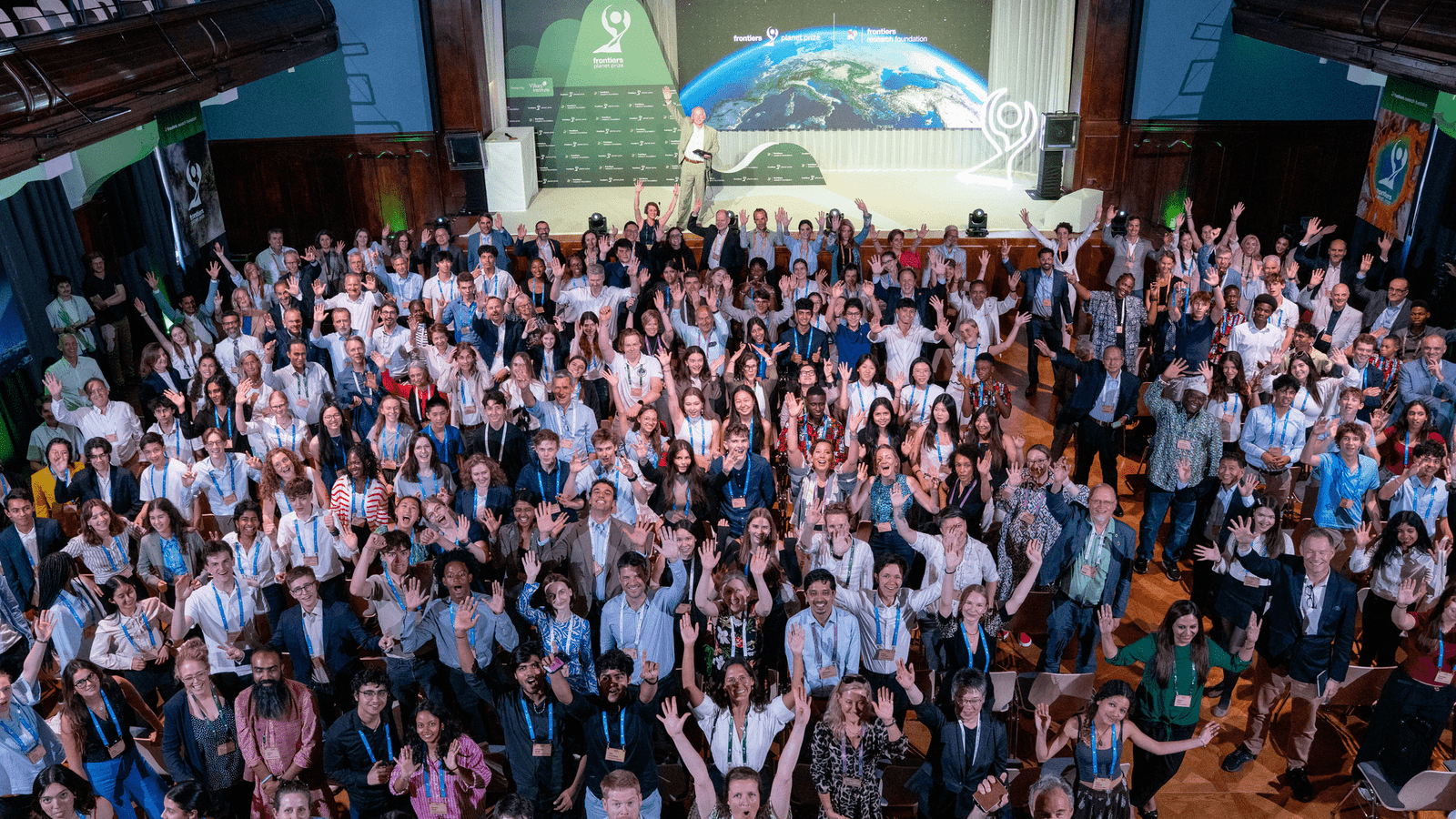
Attending the Frontiers Planet Prize 2025 in the mountain town of Villars-sur-Ollon, Switzerland, felt a bit like being on top of the world—literally and figuratively.
With sweeping alpine views as a backdrop, scientists, educators, students, and thought leaders gathered from across the globe to spotlight something equally breathtaking: breakthrough research with the power to shift the course of our planet’s future.
As a strategic partners for the prize, Future Earth joined this year’s event, held from 16-18 June, for the third edition of the international award. Its goal is to foster research on planetary boundaries that explores scalable, sustainable solutions to address our environmental crisis. Messages permeating the event included the urgency of upscaled action to accelerate the transition, the need for more effective engagement with societal stakeholders, and the appeal to people’s hearts: “protect what you love”.
Many pointed to the co-hosting of the Villars Symposium as a crucial component, which allowed the national champions, prize alumni, and academy representatives to mingle and interact with over 130 Villars fellows attending an overlapping and complementary educational program. The fellows are gifted young people selected by partner schools and colleges across 40 countries, representing the future hope of sustainability leadership.
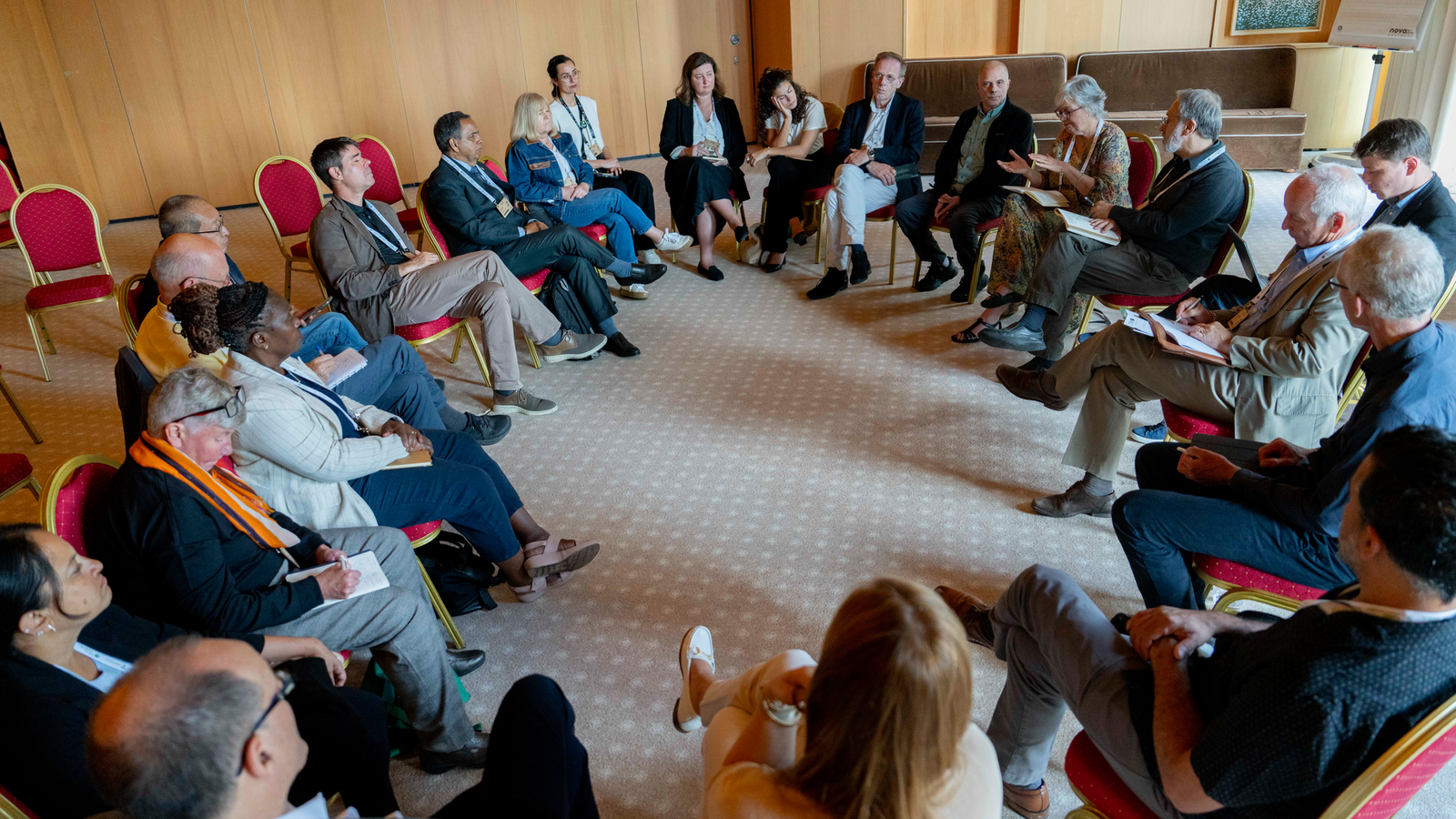
The international winners were announced at a ceremony on 17 June, but not before spotlighting the research efforts of all the National Champions and their collaborators, crediting more than 380 researchers worldwide. The international winners are selected by a jury of 100 independent experts in sustainability, drawn from the 19 National Champions announced in April. Each international winner receives a prize of $1 million to develop their research efforts. In 2025, they came from Sweden, the US, and Australia and were invited to the stage to present their work’s relevance. Many in the audience said they were eager for a deeper dive into the award-winning insights.
All of the international winners emphasized the importance of research collaborations across disciplines and sectors, underscoring the collaborative spirit of sustainability science. “Of course, we know that science isn’t about individuals, it’s about teams,” said Jean-Claude Burgelman, Director of the Frontiers Planet Prize. “So we rely on institutions to nominate the lead person, and it’s up to them to divide the prize amongst their teams.”
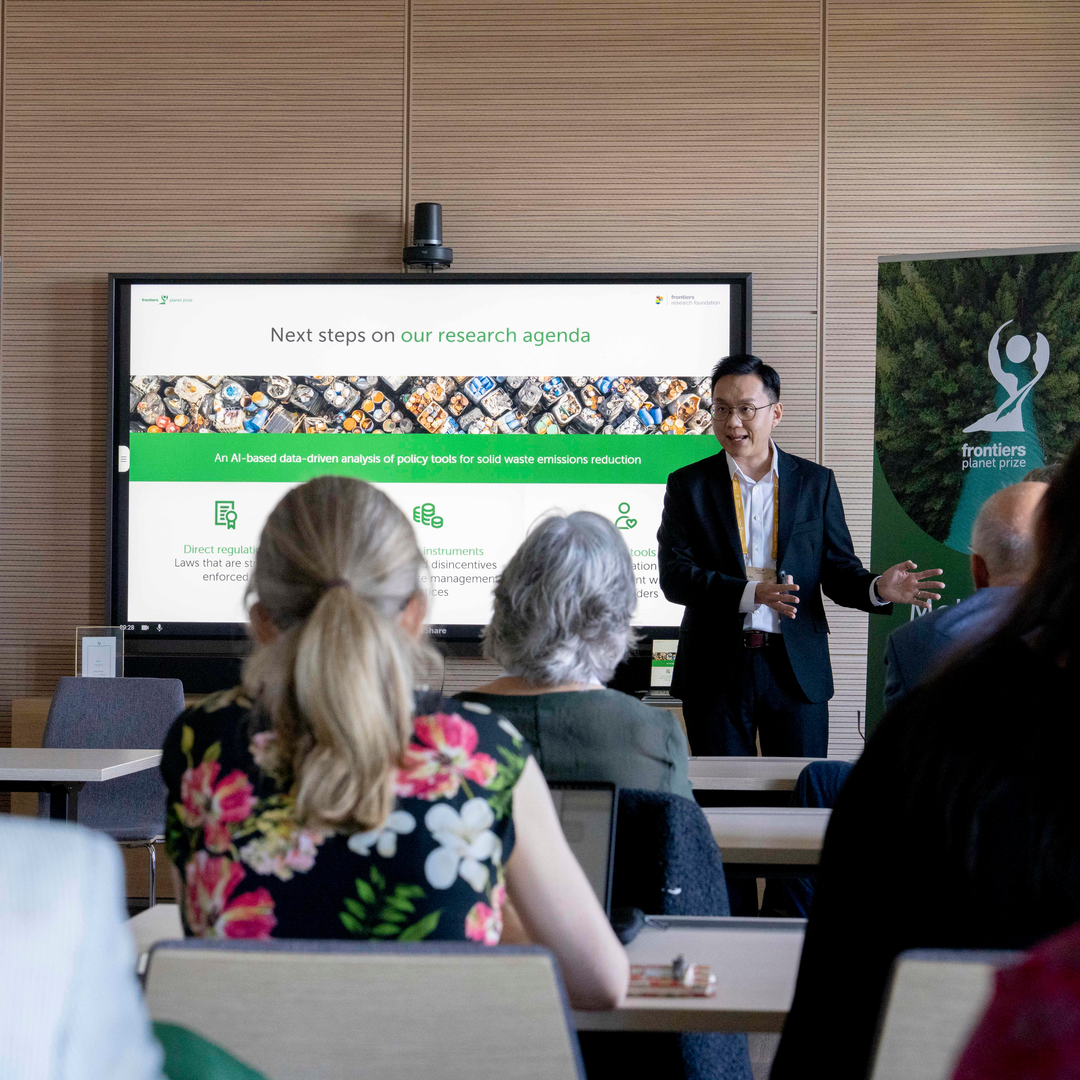
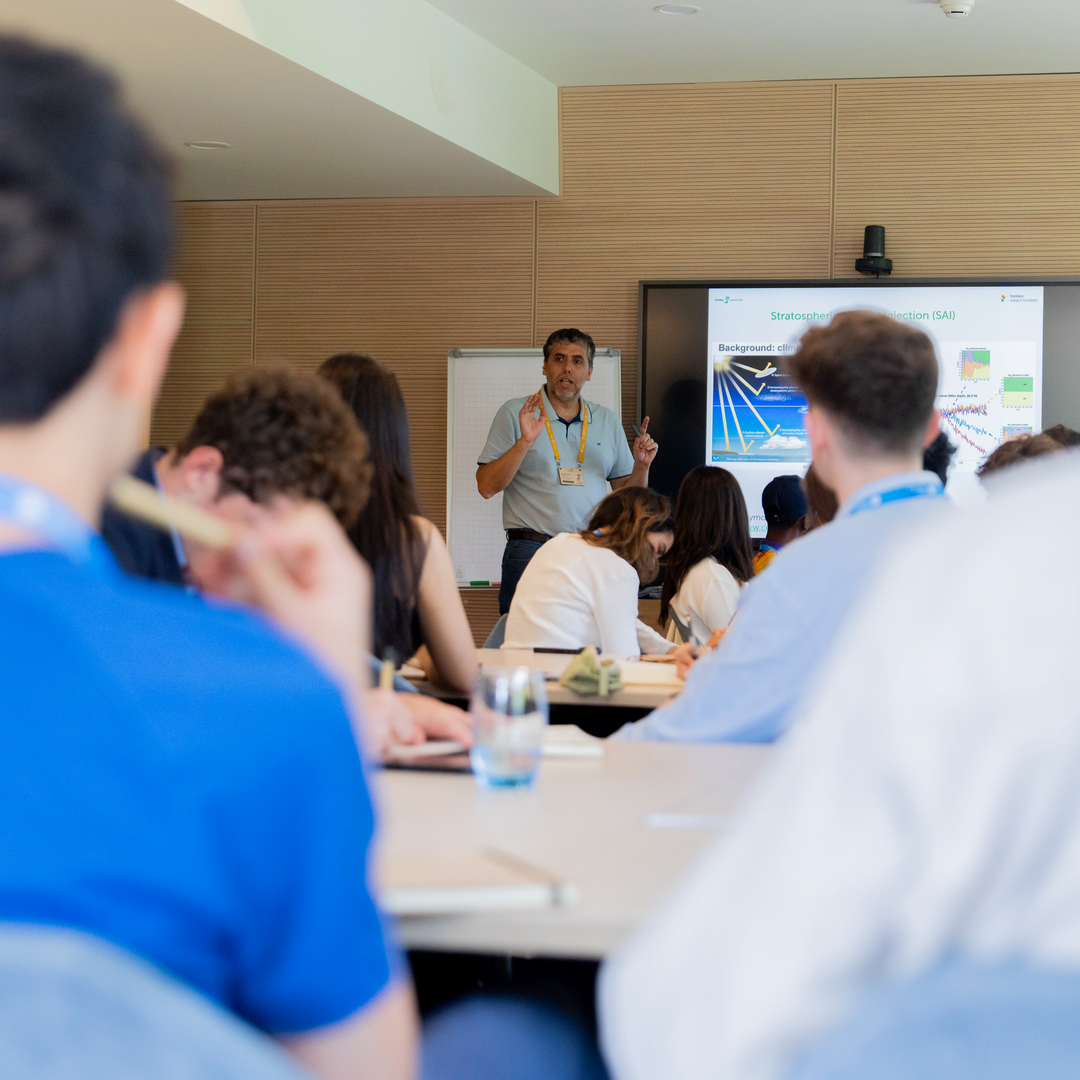
Routes to Transformation
Over the three-day gathering, the National Champions shared their research in workshops and took part in wide-ranging conversations about how science can lead to real-world action and societal change. Not every project was ready to be scaled up just yet; some are still focused on deepening our understanding of how Earth’s systems work. That kind of foundational research is just as valuable and needs to be celebrated, too.
For research findings more aligned with action, participants highlighted that upscaling should be treated with care and forethought. What works well in one place might not work the same way elsewhere, especially given different policies, resources, and contexts. Researchers were encouraged to consider not just if a solution works, but how quickly and widely it can realistically be adopted.
When implementing nature-based solutions, industrial partnerships are often assumed to be a pathway to upscaling, but in many cases, this is not sustainable. A proven approach for improving scalability is cross-sector partnerships that co-design solutions, with scientists playing a facilitating role by providing the mechanistic understanding of the proposed solutions. A lengthy discussion was held on how the Frontiers Planet Prize could support the Champions more actively, by providing a series of interactions that could include mentorship, workshops, conference travel, and the establishment of Communities of Practice.
A common thread in discussions was the need for effective communication—from appealing to what the general public cares about, such as health risks, safety, and security, to telling personal stories, to helping people reimagine a more positive future. Scientists should emphasize the co-benefits of their solutions, for example, the positive effects of coastal restoration efforts on people’s livelihoods.
Practical measures include collaborating with policy-oriented brokering organisations, youth movements, and Indigenous Peoples, producing clear summaries and press releases, and investing in more training for scientists in science communication (which also has the much-needed benefit of supporting science journalism).
One of the national champions, Vincent Woon Kok Sin of Malaysia, said he hoped to ease the communication challenge using AI, by developing a large language model for decision-makers in different countries to provide tailored policy recommendations for managing emissions from solid waste.
To close the gap between science and action on the environmental crisis, participants highlighted the lack of systems that bring science into decision-making at local and national levels. While some countries have advisory committees to inform policy, many do not. Scientists were encouraged to join advisory groups, engage in science diplomacy, and build trusted relationships with decision-makers. Brokering or “boundary” organizations can help bridge that divide. Participants also urged science academies to take a stronger role in mentoring researchers and supporting these vital connections.
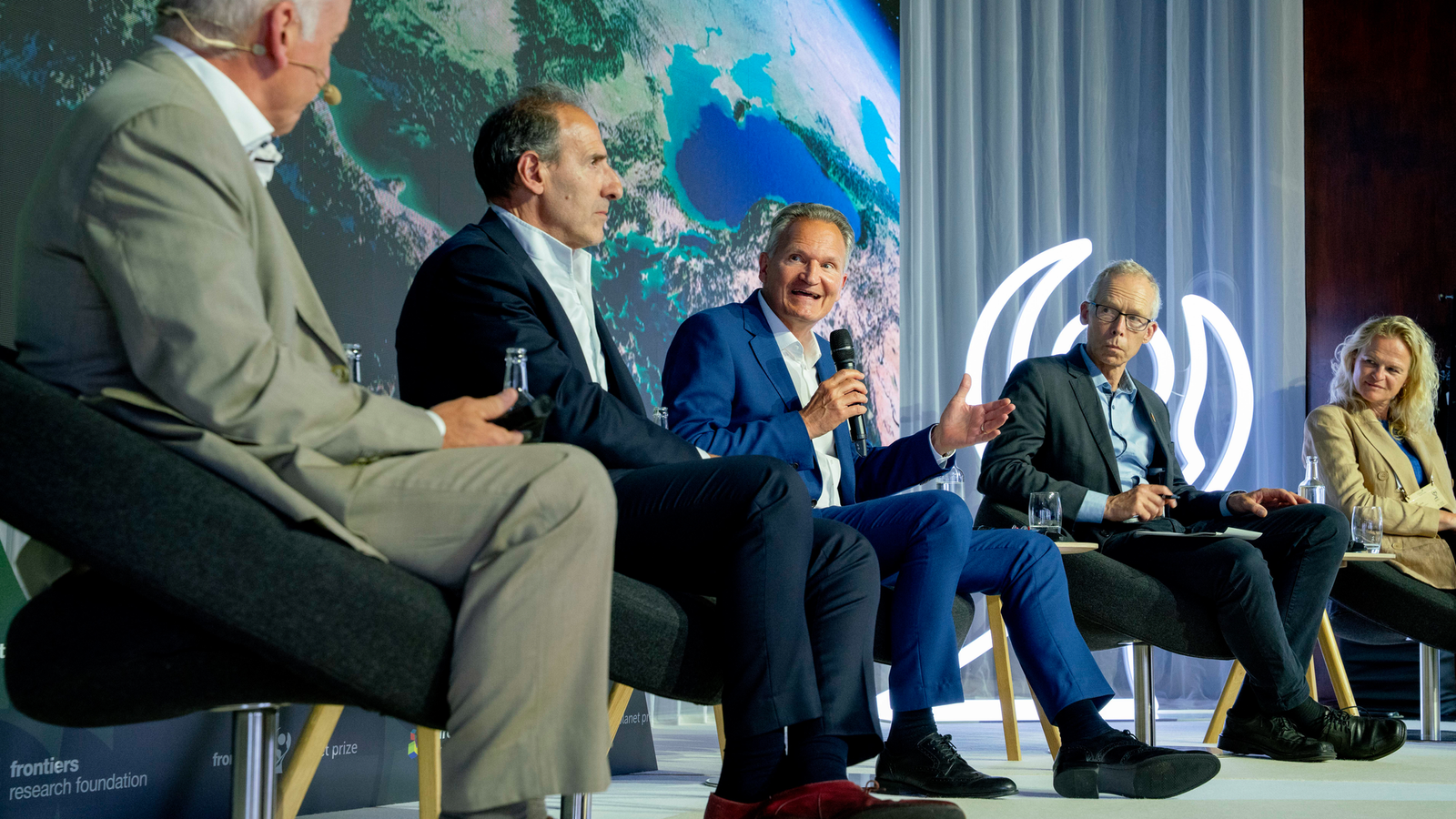
International awardees
Zahra Kalantari, Sweden’s national champion, was awarded for a study that quantifies the different ways that nature-based solutions in cities can help cut urban carbon emissions. She painted a vivid picture of a greener urban future, illustrating it with real-world examples such as New York’s regreening of a disused railway line now used for walking and cycling, and Copenhagen’s green roofs that reduce the need for air conditioning during summer heatwaves. The carbon mitigation effects come through often overlooked pathways, such as through behavioural change, microclimate regulation and resource savings.
“This work came out of work with city planners in Stockholm 10 years ago, when we realized they just don’t consider the mitigation potential of nature-based solutions,” explained Kalantari, who is based at KTH Royal Institute of Technology. “There were no guidelines for them at city level, so we created this tool.” The study found that maximizing nature-based solutions could reduce urban carbon emissions by 17.4%, and up to 57.3% when combined with other mitigation strategies in EU cities by 2030. She had a simple message for climate negotiators at COP: consider the potential of these nature-based solutions for mitigation at the city level.
Zia Mehrabi, the US national champion, was recognized for a global analysis in the journal Science, showing that diversified agriculture can improve outcomes for humans and nature without impacting yields. Five simple strategies were investigated across 11 countries, including the use of multiple species, incorporating areas of non-crop vegetation such as hedgerows, and efforts to conserve soil or water. “What we eat and how we produce our food is probably the most important factor driving the planetary boundaries of biodiversity loss, freshwater change, climate change, and biogeochemical flows,” said Mehrabi, who is based at the University of Colorado Boulder.
The analysis, led by researchers from the Global Land Programme of Future Earth, Laura Van Rasmussen and Ingo Grass, provides evidence of win-win outcomes for farmers, particularly when multiple strategies are employed. Rasmussen added that improvements for soil were a particularly strong outcome. To deepen the impact of the research, the team will use the award to extend the analysis to include other beneficial diversification practices, build their coalition and reach inspirational leaders, build capacity in existing farming networks, and train the next generation of scholars and leaders.
The third international winner, Arunima Malik, who is the national champion for Australia based at the University of Sydney, was recognized for an analysis of international supply chains and their social, environmental and economic impacts. The work offers a multifaceted picture of how international trade can promote or hinder progress towards the Sustainable Development Goals. Asked what the award would support, she hopes to develop frameworks that can allow businesses to assess the impact of their supply chains. Bluntly, this will allow people “to choose to act to address the impacts of non-sustainable and unjust supply chains,” said Malik.
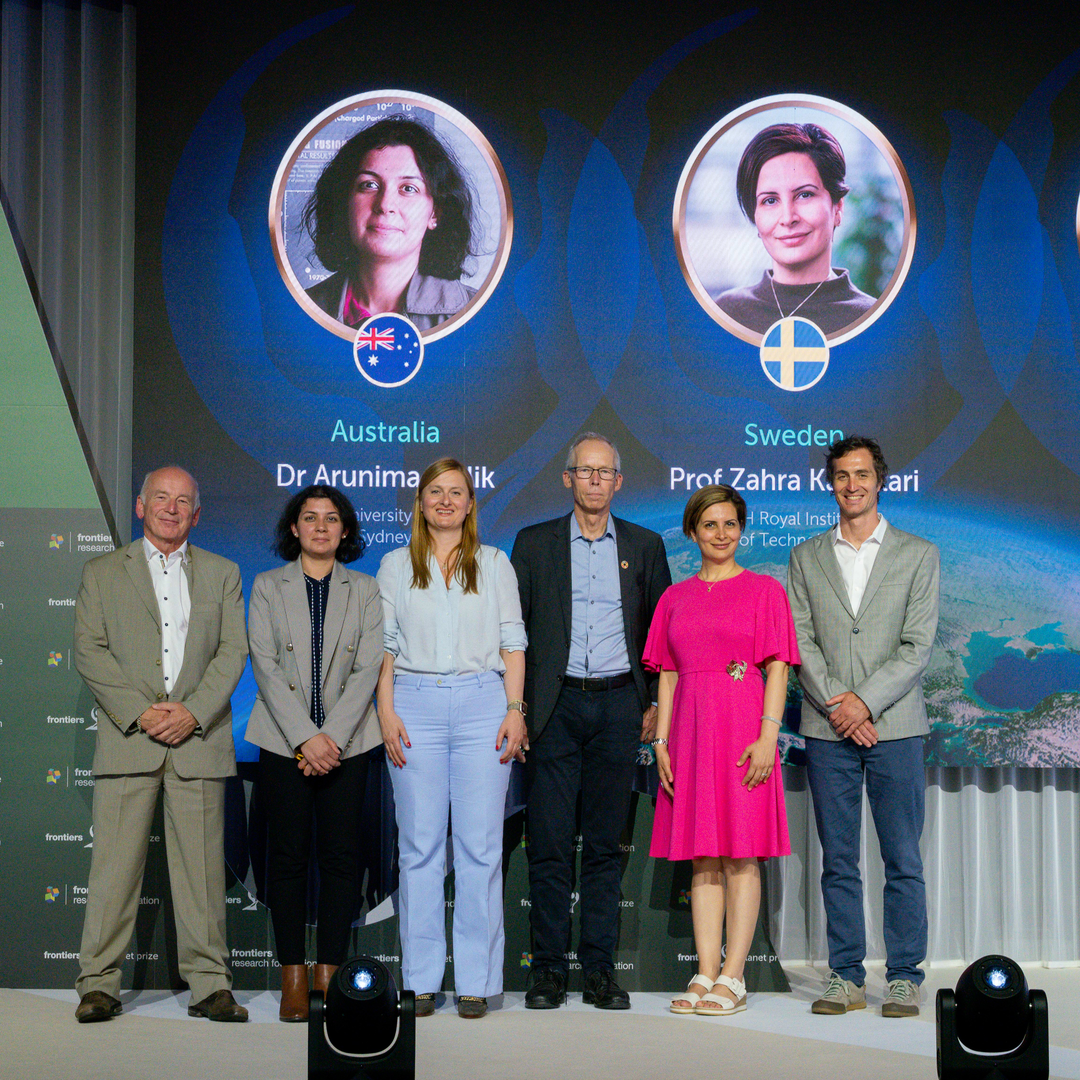
Next steps for planetary boundary science
Participants made several broad recommendations for the scientific research agenda for planetary boundary science. The concept of planetary boundaries continues to be useful, but more so for countries in the Global North than the Global South. Research exploring how applicable and tangible this framework could be to Global South contexts would be helpful.
For nature-based solutions, two research paths emerged: one local and transdisciplinary, the other global and data-driven. Exploring how these approaches could be better integrated may yield stronger outcomes. In agriculture and trade, there’s a need to assess the combined impacts of practices and supply chains on planetary boundaries—especially their effects on human health. AI is expected to support these complex assessments.
From a health and justice perspective, participants called for studies that quantify the economic costs of climate-related health impacts, do more attribution work, and strengthen monitoring systems. In water and ecosystems research, they suggested focusing on high-impact issues like drought or fire, or on sensitive regions such as the Arctic, to foster cross-disciplinary collaboration.
Amid a global rise in nationalism and populism, open scientific collaboration is more important than ever. Participants emphasized breaking down the social-natural science divide by:
- Reforming funding to support social science;
- Rethinking how universities and research institutions are structured, considering co-location of research groups to foster more interaction;
- Building shared understanding of concepts and terms;
- Changing authorship norms to promote greater diversity of gender, geography, and discipline.
We couldn’t stay on top of the world forever, but the Champions’ journey didn’t end at the summit. As they return home, they carry new recognition and influence. Their voices will be amplified on conference stages, in media, and through institutional support. As 2024 international winner Pedro Jaureguiberry of Argentina said, “winning this prize has been a game changer for my career.” Now, with three years of alumni, the Frontiers Research Foundation is building a network of sustainability leaders poised to shape the research agenda—and inspire lasting change.














